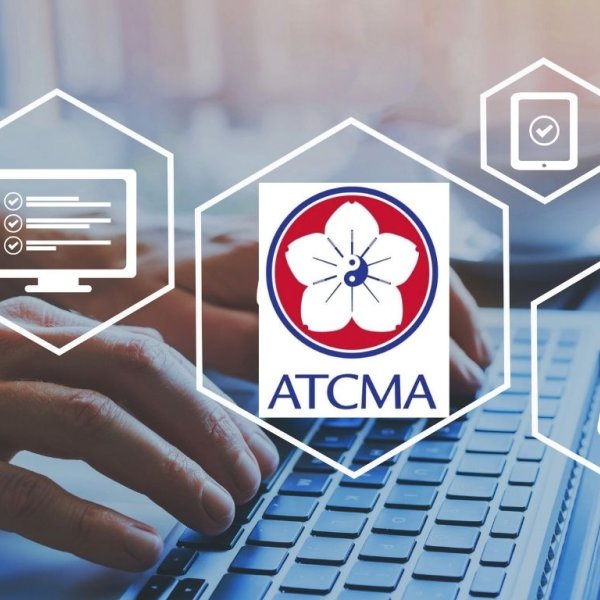ATCMA has been communicating with government and stakeholders about the upcoming fee changes Health Canada is placing on Natural Health Products (NHPs), including processed Chinese herbs and TCM products. This will likely lead to increased prices and loss of product availability and access.
ATCMA has been communicating with government and stakeholders about the upcoming fee changes Health Canada is placing on Natural Health Products (NHPs), including processed Chinese herbs (raw herbs are exempt) like concentrated herbal powders and herbal tablets, capsules, pellets, patches, topicals, moxibustion products, and more.
Distributors and manufacturers have told us that these fees will likely lead to higher costs that will be passed down to us and our patients. Further, they are likely to result in a decrease in availability to the wide array of herbal and TCM products that we use, as companies will need to decide if carrying a particular herb or TCM product is financially viable or not.
Overview
Health Canada has introduced a series of regulatory changes for Natural Health Products (NHPs), which include Traditional Chinese Medicine (TCM) herbal products. The government says these changes aim to enhance consumer safety because they aim to increase their staffing and resources to administer regulatory oversight. This move will directly affect manufacturers, importers, distributors, and other stakeholders in the NHP sector, including Traditional Chinese Medicine (TCM) practitioners who prescribe herbs. It will also, of course, affect the public who accesses and rely upon NHPs to manage their health conditions and prevent illness.
Action Steps for TCM Professionals
- Engage with Policymakers:
- Contact Members of Parliament (MPs) to express concerns about the impact of these changes on TCM practices.
- Ask them to advocate for support of Bill C-368, which seeks to reverse the new regulations.
- Participate in Public Campaigns:
- Sign and share this petition https://www.saveoursupplements.ca/tcm which is specific to Chinese herbs and TCM products.
- Educate Patients:
- Inform patients about the potential implications of these changes and encourage them to support advocacy efforts.
- Share the information with your colleagues, patients, friends, and family. Here are links to shareables, including documents you can print and have out at your clinic:
- Petition document to print and/or share in English: EN onepager V1.pdf
- Petition document to print and/or share in Chinese: 2. Chinese onepager V1.jpg
Background Summary of Information:
Why Are These Changes Happening?
What Does Health Canada Say About the New Fees?
- Health Canada is implementing these new fees to address increasing regulatory costs associated with overseeing NHPs. The fees will apply to activities such as new product applications, renewals, and amendments to formulations or product labeling.
- These changes aim to ensure NHPs on the market meet rigorous standards
Are There Already Current Regulations for NHPs?
- Natural health products (NHPs) in Canada are already regulated by Health Canada’s Natural and Non-prescription Health Products Directorate (NNHPD). These products include vitamins, minerals, herbal remedies, probiotics, homeopathic medicines, and traditional medicines.
- To be sold in Canada, NHPs must have a product license, identified by a Natural Product Number (NPN) or Homeopathic Medicine Number (DIN-HM) on the label. This ensures the product is safe, effective, and meets quality standards. Manufacturers and importers also need site licenses, which require compliance with Good Manufacturing Practices (GMPs) for quality and safety.
Key Regulatory Changes Affecting TCM
1. Cost-Recovery Fees
- New Fee Structure: Health Canada’s cost-recovery program introduces fees for:
- Right to Sell (RTS): $542 annually for each NPN (Natural Product Number).
- Product License Application (PLA): Up to $4,000 for new products.
- Site License Fee: $20,000 annually for manufacturers, packagers, or distributors.
- Note that Health Canada does have discounted rates that will gradually increase over time for small and medium-sized businesses, but these costs still add up considerably.
- Impact on TCM:
- TCM suppliers often carry 400 to 1,000 NPN products. The new fees could result in costs ranging from $200,000 to $500,000 annually per business.
- Small and medium-sized businesses may face closure due to these financial burdens, reducing the availability of essential herbs and formulations.
2. Inclusion in Vanessa’s Law
- NHPs, including NHPs (including TCM products), now fall under Vanessa’s Law, subjecting them to pharmaceutical-level oversight.
- Critics argue that this level of regulation is unnecessary for NHPs like TCM herbs, which have a long history of safe use.
3. NHPs and TCM Herbs in the Same Category as Some Nicotine Products
- The Non-Prescription and Natural Health Product Directorate (NNHPD) under Health Canada has also included over-the-counter (OTC) drugs like acetaminophen, ibuprofen, and cough syrups, as well as some nicotine under the same regulatory category as natural health products, including Chinese herbal products.
Challenges for TCM Professionals
1. Reduced Product Availability
- Rare or less commonly used herbs may be discontinued as suppliers prioritize high-demand products to offset costs. This will limit treatment options for practitioners and reduce access to customized care.
2. Increased Costs
- Higher fees will likely lead to increased prices for TCM products, making them less affordable for patients. Practitioners may struggle to provide affordable care while maintaining their practices.
3. Potential Loss of Industry Expertise
- The financial strain on small and medium-sized TCM suppliers could result in closures, reducing the diversity and availability of trusted products. This could force patients to seek unregulated alternatives online (such as ordering products from countries with little to no regulatory oversight), increasing safety risks.
Legislative Context and Advocacy
Bill C-47:
- Categorizes NHPs as therapeutic products, subjecting them to the same regulatory framework as pharmaceuticals.
- Sections 500-504 expand Health Canada's enforcement powers, including fines and recalls without consultation.
Bill C-368
- Introduced as a Private Member’s Bill to repeal changes to NHP regulation under Bill C-47, including cost-recovery fees.
- The bill aims to restore NHPs, including TCM products, to their previous regulatory framework, which balanced safety with affordability.
- Current Status:
- As of January 24, 2025, Bill C-368 is at the report stage in the House of Commons. The next step is the report stage debate, followed by the third reading in the House. If it passes the third reading, the bill will proceed to the Senate for further consideration.
- Next Steps:
- Report Stage Debate: Members will debate the committee's report and consider further amendments.
- Third Reading: A final debate in the House of Commons, followed by a vote.
- Senate Consideration: If approved by the House, the bill moves to the Senate, where it undergoes a similar process: first reading, second reading, committee review, report stage, and third reading.
- Royal Assent: Upon passing all stages in both chambers, the bill receives royal assent and becomes law.
For the most current information on Bill C-368, you can visit the Parliament of Canada's LEGISinfo website. Parliament of Canada
Conclusion
The proposed regulatory changes pose a significant threat to the accessibility and affordability of TCM products in Canada. TCM professionals, suppliers, and patients must work together to advocate for balanced regulations that protect consumer safety without jeopardizing the future of TCM practices.



Login to comment
Comments are only available to registered users. Not registered yet? Create a free account now.